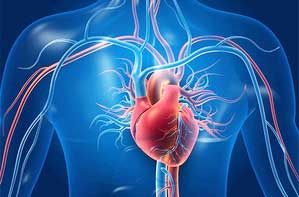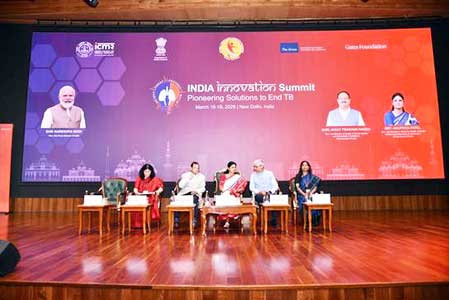Indian diet rich in iron, zinc, and fibre, regular consumption of tea, and use of turmeric in meals lowered severity and death due to Covid in the country, according to a study published in the April edition of the Indian Journal of Medical Research by the Indian Council of Medical Research (ICMR).
During the Covid-19 pandemic, the death rate was reportedly 5-8 fold lower in India which is densely populated as compared to lesser-populated western countries.
The study, conducted by an international team of scientists including from India, Brazil, Jordan, Switzerland, and Saudi Arabia, aimed to investigate whether dietary habits were associated with the variations in Covid-19 severity and deaths between Western and Indian population.
"Our results suggest that Indian food components suppress cytokine storm and various other severity-related pathways of Covid-19 and may have a role in lowering severity and death rates from Covid-19 in India as compared to western populations," said the researchers including from Centre for Genomics and Applied Gene Technology at Institute of Integrative Omics & Applied Biotechnology, in West Bengal, and Policy Center for Biomedical Research at Translational Health Science & Technology Institute in Haryana.
"However, large multi-centered case-control studies are required to support our current findings," they added.
The findings showed that the components of Indian diets, which maintain high iron and zinc concentrations in blood and rich fibre in foods, played a role in preventing carbon dioxide (CO2) and lipopolysaccharide (LPS)-mediated Covid-19 severity.
LPS is a common inflammatory mediator to induce inflammatory processes in the brain.
Further, regular consumption of tea by Indians helped maintain high HDL (high-density lipoprotein), also called "good" cholesterol. The catechins in tea also acted as a natural atorvastatin (a statin medication used to prevent cardiovascular diseases) in lowering triglyceride in blood.
Importantly, they said, regular consumption of turmeric in daily food by Indians led to a strong immunity.
The curcumin in turmeric may have prevented pathways and mechanisms associated with SARS-CoV-2 infection and Covid-19 severity and lowered the death rate, said the researchers.
On the other hand, increased consumption of red meat, dairy products and processed foods resulted in an increase in the severity and death due to Covid in the western populations.
These foods "activate cytokine storm-related pathways, intussusceptive angiogenesis, hypercapnia and enhance blood glucose levels due to high contents of sphingolipids, palmitic acid and by-products such as CO2 and LPS" they wrote in the study.
Palmitic acid - the most common saturated fatty acid found in the human body - also induces ACE2 expression and increases the infection rate, the team said.
Coffee and alcohol that are highly consumed in western countries also led to an increase in severity and death rates from Covid-19 by deregulating blood iron, zinc and triglyceride levels.
For the study, the team used blood transcriptomes of severe Covid-19 patients from three western countries (showing high fatality) and two datasets from Indian patients.
Gene set enrichment analyses were performed for pathways, metabolites, nutrients, etc., and compared for Western and Indian samples to identify the food- and nutrient-related factors, which may be associated with Covid-19 severity.A
Data on the daily consumption of twelve key food components across four countries were collected and a correlation between nutrigenomics analyses and per capita daily dietary intake was also investigated.






Indian pharmaceutical exports get reprieve from Trump’s reciprocal tariffs
Because of the importance of India’s pharmaceuticals to US healthcare, those exports will get a reprieve from President Donald Trump’s reciprocal tariffs, according to the White House.
New AI algorithm to predict risk of cardiovascular events, heart-related death
A team of researchers in South Korea has developed a novel artificial intelligence (AI)-based algorithm that uses electrocardiograph (ECG)2 data to predict the risk of cardiovascular events, and heart-related death.